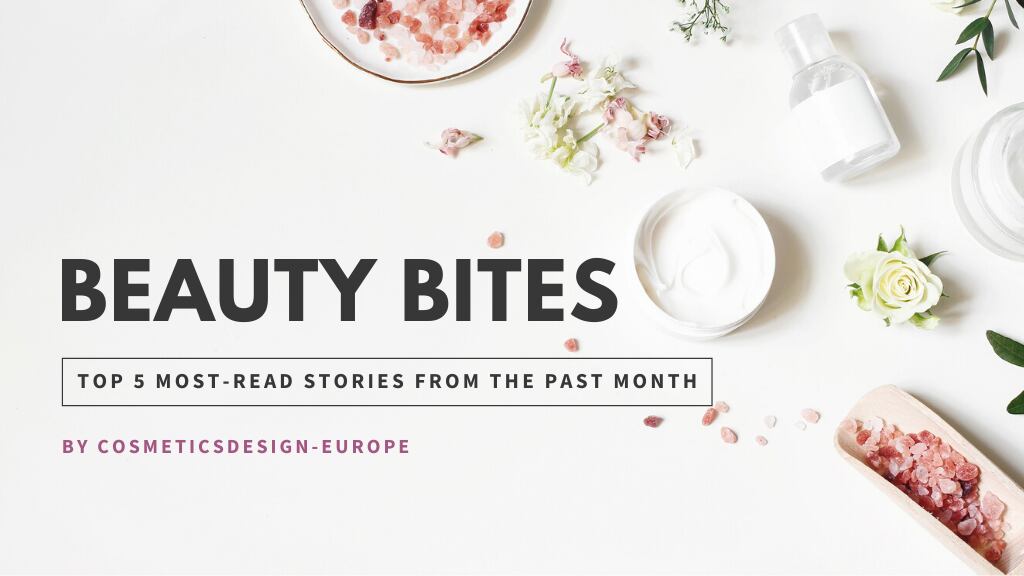Last month, cosmetic claims consultant Dr Theresa Callaghan warned of a need for the beauty industry to slow down and let scientists lead as the gap between industry and consumers continued to widen. And these sentiments were matched by market trends major Mintel in-Cosmetics Global held in Barcelona, Spain three weeks ago.
Addressing attendees at the show, Andrew McDougall, director of beauty and personal care at Mintel, said demands and expectations in beauty were certainly more complex post-pandemic.
“When you have a health pandemic, all issues around health will naturally accelerate. What we’ve seen is this kind of medicalisation of beauty,” McDougall said.
‘Consumers ultimately want substantiation of products’
Beauty consumers today, he said, were “much more involved” in the category than before, with many looking to better understand ingredient lists and formulations in great detail.
Connecting with these consumers, therefore, had become increasingly important for brands and businesses of all sizes in beauty and personal care, he said.
“Consumers ultimately want substantiation of products,” McDougall said. “…If you’re saying a product is going to do something; make sure it does.”
According to Mintel data, for example, 75% of Spanish consumers agreed beauty brands should provide more scientific evidence to validate claims made.
McDougall said this could be done via a range of techniques, from detailed websites featuring information about each ingredient and claim or offering access to experts to recommend products or explain why these would be suited to a consumer’s needs.
Mintel findings suggested, for example, that 15% of beauty consumers wanted pre-purchase advice on a product – a figure that “could be bigger” in the future, he said.
This could ultimately carve out opportunities for more “expert-led discussions” by brands, whereby scientists or formulators took the lead on engaging with consumers, he said.
Beauty and the brains
Science-backed beauty influencers, such as those with an R&D or cosmetic chemistry background, could also work well as these were highly regarded by consumers, he added.
McDougall said some brands had already integrated such strategies successfully. Hayley Bieber, for example, had teamed up with renowned cosmetic chemist Ron Robinson to provide educational insight on the brand’s social media channels about the products and ingredients. Chanel had also run a ‘beyond the jar’ campaign that included videos of in-house scientists working on formulations and products in the lab. “Doing things like that – showcasing behind the scenes – is a great way to build trust and value,” he said.
CeraVe was another good example of a brand succeeding in this space, providing accessible and fun video campaigns showing consumers ‘how to cleanse like a derma’.
It was important, McDougall said, for brands to understand that many beauty consumers wanted to learn more about beauty formulations and ingredients not just to plug skin needs and understand efficacy, but also because it was simply fun and engaging to do so.
And all of this education and engagement, he said, was especially timely in the context of today’s ongoing cost-of-living crisis – where beauty brands now had to earn a “deserved place” in shopping baskets.
Beauty value – the ‘renaissance’ of personalisation
Today, he said, was about creating value for consumers. And one great way to do this was via personalisation. “This can be done at many different scales, from online quizzes and creating products, to diagnostics and creating really personalised solutions for consumers.”
“…Personalisation is going to see this renaissance and acceleration because there are too many choices; there’s a lot of marketing jargon, and consumers don’t know who or what to trust,” he said.
The future of personalised beauty, McDougall said, would be “intelligent” and “tool-based”, with the likes of Artificial Intelligence (AI), DNA diagnostics, biomarker testing and genetic sequencing increasingly used in the mainstream.
Beauty brands would also have to tackle the big data challenge – working to use information wisely but also assure consumers and encourage them to share personal insights, he said.
“Beauty consumers do tend to be willing to share their data, but almost half of adults are uncomfortable with sharing data with companies. So, it’s really important we follow all the protocols and consumers understand how we’re going to use that data.”
Hyper-personalisation, he said, remained appealing for consumers today and so how industry developed tools and technology within this space would remain key moving forward. Strong storytelling and creating accessibility would also prove vital if truly personalised beauty was to become mainstream and connect with a wide consumer set, he said.




